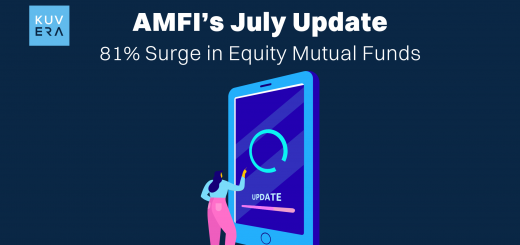The year 2025 is finally here!
The beginning of a new year in 2025 presents an excellent opportunity to reassess financial goals and fine-tune investment strategies. Mutual funds India of course seem to continue to be a preferred wealth creation, providing flexibility and diversification avenue. They also present exciting opportunities to mix-and-match various risk appetites and potential returns with financial goals.
With informed mutual funds India investing, investors can set clear investment resolutions. Well thought-out investment resolutions can help investors build a more resilient portfolio aligned with evolving market conditions and financial goal-planning.
So, what are your plans for the new year?
Reflecting on Past Investments
The foundation for crafting new financial resolutions lies in reviewing the performance of existing mutual fund portfolios.
2024 might have brought shifts in geo-political, economic conditions, interest rates, and market dynamics, directly impacting mutual fund returns.
Investors can revisit their Systematic Investment Plans (SIPs) and other mutual fund holdings to evaluate whether the returns align with the initial financial goals that were set at the time of investment.
Furthermore, it is crucial to understand how various asset classes performed in 2024. Equity mutual funds, for instance, might have experienced volatility, whereas debt mutual funds might have provided comparatively stable returns.
So, what were the factors that caused stock market volatility in 2024?
You can make note of the same.
Similarly, balanced or hybrid funds might reflect a combination of both, stability and higher returns potential. This reflective process might help identify underperforming funds that might need to be replaced or realigned with better-performing schemes in mutual funds India. But all this is easier said than done and would require professional advice from a SEBI-registered fee-only financial advisor.
Setting Clear and Realistic Financial Goals
Investing without a clear goal might lead to impulsive decisions that might not maximise mutual fund returns potential, but sabotage it.
One of the primary resolutions for 2025 can be defining specific financial goals and then aligning with your investments.
Some of these goals can be –
- Child’s education,
- Building a retirement corpus,
- Purchasing a new home.
Aligning mutual fund investments to these goals might lead to better financial decision-making.
Long-term goals might be better matched with equity-based mutual funds. This is due to their potential for higher returns in the long run. Similarly, short-term financial goals might better match debt or liquid funds. Investments can be categorised based on the time horizon and risk appetite. Thus, investors can build a balanced portfolio that can help them mitigate various investments risks and optimise mutual fund return potential.
Diversification Across Mutual Fund Categories
The benefits of diversification are well-known now.
A well-diversified portfolio is kind of a recipe for a sturdy portfolio that can stand the test of time.
Mutual funds India can offer a wide array of schemes catering to different risk appetites and investment tenures or duration. Investors can consider diversifying across different capitalisations like large-cap, mid-cap, and small-cap equity funds. This can ensure a mix that taps into growth potential across different market segments.
Debt mutual funds can provide stability and can be essential for conservative investors or those nearing their financial goals. Hybrid funds can strike a balance by investing in both equities and debt instruments, providing a cushion during market downturns. Dynamic asset allocation through funds can adjust investments based on prevailing market conditions. This can potentially offer better mutual fund returns without requiring frequent portfolio adjustments.
Reviewing and Realigning SIPs
As the saying goes, “just SIP it and forget it”.
SIPs have revolutionised the mutual fund investments India space. They have encouraged disciplined investing while averaging stock market volatility. However, continuing the same SIPs without reassessing their performance may not yield the desired mutual fund return.
Therefore, investors need to resolve to periodically review their SIP contributions. They can also increase or reallocate funds to previously high-performing mutual fund schemes while exiting or re-adjusting SIPs of the underperforming ones. However, it is important to remember here that past performance is not a promise of future performance.
Top-performing funds in different categories can be identified using apps like Kuvera. If certain SIPs no longer align with financial goals, investors can shift to schemes that exhibit stronger growth potential. Investors can also consider increasing SIP contributions incrementally with salary hikes or annual bonuses. Such gradual increase in SIP can also help in accelerating wealth accumulation.
Exploring New Fund Categories
As mutual fund offerings evolve, new categories and themes emerge, providing innovative investment avenues. This is also in line with new and upcoming IPOs.
Mutual funds like sectoral funds, ESG (Environmental, Social, and Governance) funds, INVits and international mutual funds are newer category mutual funds. They seem to be gaining traction among investors looking to diversify beyond traditional underlying asset class options. Investors might add an extra layer of diversification to their portfolio by investing in them. These might also potentially help in boosting mutual fund returns over the long term for certain investors.
However, thematic or sectoral funds require a more detailed understanding of specific industries and might carry a much higher risk than diversified equity funds. Therefore, investors need to consider their risk appetite and financial goals tenure before investing in it above a certain percentage of their portfolio.
Emphasising Tax Efficiency
Tax planning has always been an essential component of any mutual funds investment strategy. Investments like Equity-Linked Savings Schemes (ELSS) not only offer the potential for robust mutual fund returns, but also provide tax benefits under Section 80C of the Income Tax Act. Also, with the introduction of passive ELSS funds, tax saving investments have more options and modifications to enhance the returns potential. Investors can integrate tax-saving funds into the investment portfolio. This can help investors reduce their taxable income while benefiting from equity market growth. This can especially help them in long-term goals.
Investors should consider maximising their ELSS contributions early in the financial year, to avoid the last-minute rush often associated with tax-saving investments. This proactive approach can allow funds more time to grow, potentially yielding higher returns by the end of the lock-in period.
Monitoring Market Trends and Economic Indicators
Keeping abreast of market trends and economic indicators is essential for making informed investment decisions. Interest rate movements, inflation trends, and geopolitical developments can all impact mutual fund returns. Investors can stay updated with financial news and market analysis, leveraging insights from reputable sources to refine their investment strategies.
Regularly attending webinars, reading financial publications, and consulting with financial advisors can provide valuable perspectives on where the market is headed. This informed approach ensures that investment decisions align with broader economic conditions, enhancing the likelihood of achieving desired financial goals.
Automating Investments and Rebalancing
Automating investments through SIPs or recurring deposits simplifies the investment process, promoting consistency. However, automation does not eliminate the need for periodic rebalancing. Market fluctuations can alter the asset allocation of a portfolio, shifting the balance away from intended investment plans.
Rebalancing involves shifting investments between asset classes to restore the original allocation. For instance, if equity markets outperform, the equity portion of the portfolio may exceed desired levels, necessitating a shift toward debt funds. This practice safeguards against overexposure to a single asset class, ensuring that the portfolio remains aligned with risk tolerance and financial goals.
Staying Patient and Committed
Investing in mutual funds India is a long-term endeavor that requires patience and commitment. Short-term market fluctuations should not dictate investment decisions. Mutual fund returns tend to stabilise and grow over extended periods, rewarding investors who stay invested through market cycles.
Avoiding impulsive decisions during market downturns and focusing on long-term growth ensures that investments compound effectively. Resolutions for 2025 should emphasise staying the course, trusting the process, and continuously learning to navigate the complexities of mutual fund investments.
Wrapping Up
The dawn of 2025 is an opportune moment to reassess and realign mutual fund investments with evolving financial goals. Investors can reflect on past performance, diversifying portfolios, reviewing SIPs, and staying informed. With this they can enhance their mutual fund returns and work toward achieving long-term wealth creation. Mutual funds India can offer a versatile and dynamic platform for investment. And with thoughtful resolutions, 2025 can mark the beginning of a more prosperous financial journey.
Interested in how we think about the markets?
Read more: Zen And The Art Of Investing
Watch here: Rebalancing for Mutual Fund Investors












